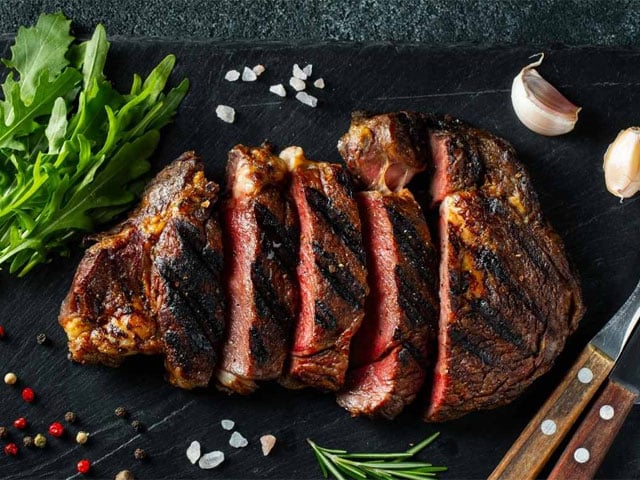Massachusetts: Eating red meat (meat that turns red on the inside after cooking, such as beef) twice a week may increase the risk of developing type 2 diabetes, a new study suggests.
According to researchers at Harvard University, replacing red meat with plant-based protein sources such as nuts and beans can reduce the risk of diabetes. At the same time, doing so can help combat climate change by reducing greenhouse gas emissions.
According to the World Health Organization, type 2 diabetes is the fastest growing health threat in the world. The disease has seen a rapid increase in the last three decades.
According to statistics, more than 40 crore people have been diagnosed with this disease, while millions of people are believed to be unaware that they are suffering from this disease. The disease is the leading cause of blindness, kidney failure, heart attacks, strokes and amputations.
Research emphasizes that the most important thing you can do to prevent type 2 diabetes is to improve your diet.
Past studies have linked red meat consumption to the risk of type 2 diabetes, but the latest study by Harvard researchers has made the link even more definitive.
In a study published in the American Journal of Clinical Nutrition, researchers studied 216,695 people from the United States.
In the study, participants were asked to complete dietary questionnaires every two to four years over a 36-year period. During this time, more than 22 thousand people were diagnosed with type 2 diabetes.
People who ate more red meat were 62 percent more likely to develop the disease than those who ate less meat.
The study found that each additional serving of processed meat was associated with a 46 percent increase in the risk of type 2 diabetes.
(function(d, s, id){
var js, fjs = d.getElementsByTagName(s)[0];
if (d.getElementById(id)) {return;}
js = d.createElement(s); js.id = id;
js.src = “//connect.facebook.net/en_US/sdk.js#xfbml=1&version=v2.3&appId=770767426360150”;
fjs.parentNode.insertBefore(js, fjs);
}(document, ‘script’, ‘facebook-jssdk’));
(function(d, s, id) {
var js, fjs = d.getElementsByTagName(s)[0];
if (d.getElementById(id)) return;
js = d.createElement(s); js.id = id;
js.src = “//connect.facebook.net/en_GB/sdk.js#xfbml=1&version=v2.7”;
fjs.parentNode.insertBefore(js, fjs);
}(document, ‘script’, ‘facebook-jssdk’));



